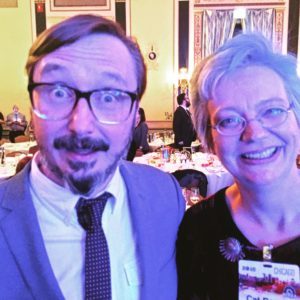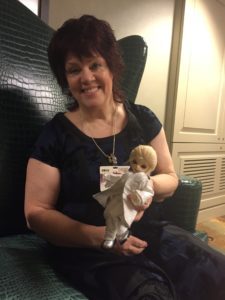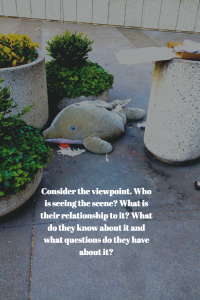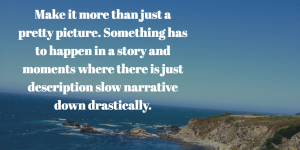Cat Rambo's Blog, page 40
June 6, 2016
Idea to Draft Finally No Longer Just a Draft
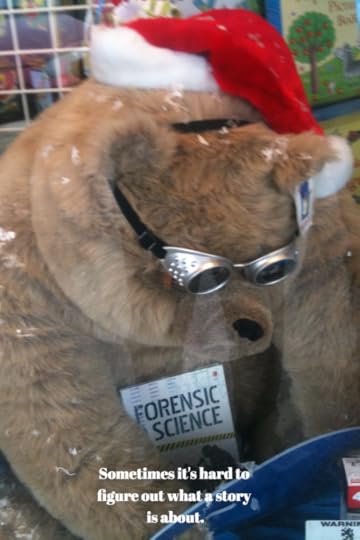
One of the things that I’ve been working on in the past six months is converting all of my live classes to on-demand versions. A few months ago I decided to try the Idea to Draft class and found it presented more problems than any of the others. I will spare you the saga, which I have blogged about elsewhere. Here’s the section on story basics, and here’s the one on what to do when you have just a scene. I will be teaching the live version, in which I work with students on their specific ideas, on July 9, which will be the last time I teach the live version in 2016.
I am very proud of this class, because I don’t think there are any other classes that take the same approach. I’m turning it into a book, which may be e-form only because it’s going to have a wordcount in the 100k+ range when you add in all the example stories. While Creating an Online Presence is, I think/hope, useful for writers on the business and career level, this is a book that works at the craft level and incorporates a lot of my story theory, the stuff that has evolved out of teaching and writing and thinking a lot about these things.
Things that I hope people like about this class:
I’ve included not just exercises but what I’ve called an Overachiever’s Version for most of them.
Each section tells you what the starting point is, what it gives you, what you need to think about, possible pitfalls, and next steps in a consistent, understandable format.
I’ve included a section on working with structures that have cultural weight to them, and how to do so respectfully but in a way that that lets you employ them to their full potential.
I will confess something — I have images for this class and I do intend to add them at some point, but in order to get this thing out the door I had to just go okay, and let go, and send it out into the world, because it’s the textual part that matters.
So, another item crossed off the list for the year, huzzah. Next on the class list is that I’m converting the Rewriting and Revising class, which should only take me a week or two, and doing it as a mini-class, along the same length as the Reading to an Audience Workshop. I know Rachel Swirsky is working away on her Retelling and Retaleing Workshop and I’m talking to someone about a VERY cool workshop that I think will be unique, informative, and exciting.
June 2, 2016
Your Online Presence: Is It Fun At Parties?
Your online persona is a mask, created out of what your words. You do have some control over how you’re perceived, perhaps even more than in real life.
I’ve updated my book, Creating an Online Presence , and it’s part of this terrific Storybundle of writing books. Since the Internet moves at the speed of an animated gif with Yakety Sax as the background music, I had a lot of work to do with the update (like checking every link to make sure it was up to date), and it included adding a few essays. Here’s one of those additions, talking about how you present yourself online.Your Online Persona
One of the things I emphasize in the Creating an Online Presence for Writers live class is that before you start setting up your website and social media, you need to think about some things. What level of personal detail are you willing to give out on the Internet? What side of yourself do you want to reflect? How can you be both professional and approachable at the same time?
And perhaps the most important question: how do you go about being someone who people want to spend a little time with, whose words they want to read and consider, lingering on your webpage rather than clicking away to some more entertaining section of the Internet?
Let’s think about a real life situation: parties. A person’s choice of reading material is like a party they’re creating, inviting different voices and entertainment in order to assemble a pleasant and entertaining medley. If you’ve got a choice, do you invite the braggart to your party? The weepy incoherent girl? The dude who makes every conversation about himself? The preachy lady from down the street? No, and no, and no, and no.
Here’s some ways you can create a bad impression that makes people want to close the door in your virtual face.
Spamming about Spamming
I know, I know, we’re all brought up to believe that it was spam, not lead pipes, that brought about the fall of the Roman Empire, and it’s been causing social ills and woes ever since. We all hate spam. And we hate being thought of as spammers too.
Which brings me to what I’ll call “social spam.” Not some nameless person somewhere on the Internets trying to get you to buy Viagra. Nope, it’s your Uncle Edith, and he wants you to come work his farm in Farmville. Or your buddy Big Burt has tagged you in one of those silly memes where your friendslist gets translated to show which character each friend would be if they were a pie filling. Are either of them doing it because they want to harass you? Probably not.
So what to do if you want to avoid that spam?
Well, first let’s consider the notion that people who, in real life, spend a lot of their time correcting other people are probably not as popular as they could be. And let’s think about whether or not that carries over to virtual life.
Here’s a hint. It does.
Let’s factor in something else. A certain amount of spam is unavoidable. If you post something loud and shouty and ANTI-FARMVILLE on your Facebook page, it may cut down on the Farmville requests. For a while. And then some Farmville player’s going to come along who hasn’t seen it.
So perhaps rather than excoriate the players, disable the game so it can’t send you requests? That’s what I’ve learned to do, and when a new game pops up, I don’t spend time upbraiding my friends for being silly enough to invite me to play a game. I do get invites whenever some new game is popular. I used to get annoyed, now I just ignore.
If someone tags you in a meme, just don’t respond. No one’s forcing you to play. But don’t go further and be a jerk about it and scold them, particularly publicly. If someone tagged you, it’s because they thought you might be interested or enjoy it. It’s as though, in a real life party, someone offered you a mint and you started yelling at them for pushing sweets on you because you’re trying to avoid candy.
Vaguebooking
It’s just…ugh. Just don’t. First and foremost, it makes you look childish, and melodramatic. So often it’s passive aggressive BS and the only person who cares is (sometimes) the person you’re committing it to, which is just petty. Come on. Get out of the high school mentality. For everyone else, it’s like being around that couple that keeps fighting and pretending they’re not.
Beyond that, it makes you look horribly unprofessional, particularly when you’re doing it about an employer, past or present. Yes, you are being funny and entertaining right now. You are also saying to anyone who might want to hire you and that looks at your social media presence — increasingly common with employers — that you will be doing this about them as well.
We have all yielded to this temptation at times. Avoiding it is a habit I continue to work on, because every time I’ve done it I find myself regretting it later.
Setting Other People Straight
Is someone saying something wrong on the Internet? Probably.
Does it matter? Probably not.
If it does, and you have the bandwidth and the energy, more power to you.
Pooping on Other People’s Passions
I know, I know. Everyone else is saying how hot and innovative that new show about the Emperor’s clothes is, but you’ve got the skinny. But maybe hang on a moment before you start letting them know what fools they are.
Do you remember when your grandparent said, “If you can’t say anything nice, don’t say anything at all?” Yeah. They were right about a lot of other stuff too.
It’s okay for other people to like things that you don’t, maybe even love them or otherwise find value that you just don’t see. It is. It really is. Nascar, for example, still exists, much to my bemusement. And that’s okay.
You Are Only a Small Part of the Universe
A wonderful one, to be sure. but one that does not exist for most people. Don’t assume slights are deliberate or that your perception matches up with the other’s. I find that giving other people the benefit of the doubt goes a long way. Such a very long way.
The Perils of Pontification
It is pleasant to be the authority, to hold forth on something you know well, and to have everyone listening. It is okay to do every once in a while. But if that soapbox is something you rarely descend from, rather than something you rarely hop up on, think about your strategy. It’s good to listen; it’s great to solicit opinions (and listen to them). Remember that good communication is a two-way street.
Along the same lines, don’t be afraid to admit when you screw up. It’s part of being human, and it’s better form than blustering or emitting a cloud of excuses and half-truths. Pretending you didn’t make a mistake when you did is not a good strategy usually. Own up and say what you’re going to do in the future to avoid making the same mistake. If it’s something you can fix, fix it. Don’t pretend that it never happened.
Conclusions
In short, you have some measure of control over how you are perceived on the Internet. Act the way you wish other people would act and you have a much better chance of influencing them than by bluster, mockery, or other attacks.
And finally — no one is ever looking as closely at you as you think they are. We are all the center of our particular universe, and that’s always, inevitably, inarguably going to shape your perceptions. If you keep that in mind, it makes dealing with your fellow humans a little easier.
At least, that’s the opinion of one of your fellow humans. Be well and prosper.
#mc_embed_signup{background:#fff; clear:left; font:14px Helvetica,Arial,sans-serif; }
/* Add your own MailChimp form style overrides in your site stylesheet or in this style block.
We recommend moving this block and the preceding CSS link to the HEAD of your HTML file. */
Subscribe to my mailing list for information on upcoming classes
#sfwapro
May 26, 2016
Science Fiction and Fantasy Writers News: SFWA Chat Hour Debuting May 30, 2016, Noon Pacific Time
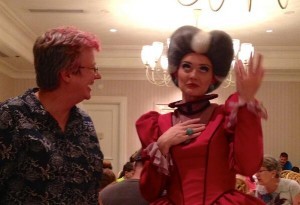
In my position as SFWA President, sometimes I have to confer with fictional characters.
I talked to some folk about this at the Nebulas, and I finally figured I need to just go ahead and start making it happen.So starting May 30, every two weeks I’ll host a SFWA Chat Hour that will be broadcast live via Google Hangouts. Each session will feature 4-5 SFWA officials, staff, and volunteers, along with the occasional special guest. During it, we’ll talk about what SFWA is doing at the moment, efforts that will be appearing, recent accomplishments and/or problems, and the F&SF industry overall. You’ll be able to watch live or catch it later on the SFWA Youtube channel.
This first one will include SFWA Vice President M.C.A. Hogarth, our Operations Director Kate Baker, SFWA CFO Bud Sparhawk, and possibly a couple of others. We’ll talk about the Nebulas, the Bulletin, our calendar, and more.
We’ll also answer questions. Feel free to e-mail or message them to me or leave them here in the comments.
May 25, 2016
Storybundling the Write Stuff
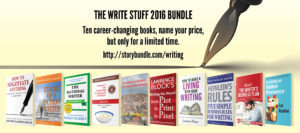 I have several maxims that I have developed over the course of my writing career. One of them is, “If Kris Rusch invites you into a project, you say yes.” Because Kris is one of the people who understands independent publishing and its possibilities, and she is a savvy, savvy marketer.
I have several maxims that I have developed over the course of my writing career. One of them is, “If Kris Rusch invites you into a project, you say yes.” Because Kris is one of the people who understands independent publishing and its possibilities, and she is a savvy, savvy marketer.
When Kris came and asked about including my book Creating an Online Presence in a Storybundle, I was thrilled and also a little panicked, because I knew it had to be updated before it went in there. Too much had happened on the Internet in the two and a half years since I’d first put it up. I was also flattered that she thought the book was worth including, because I value her opinion.
And the truth is, if you’re a writer, you do need to at least think about this stuff enough to make an informed decision. If you’re being traditionally published, your publisher will probably expect you to be helping out with the marketing in the form of social media or other Internet efforts. Every book launch, for example, seems to involve a slew of guest blog posts and similar promotions.
If you’re small press published, again the publisher will probably expect you to be helping out with the marketing and I would regard a lack of such expectations as a possible danger sign.
And if you’re going indie, there’s no way around it. You’re going to have to think about this stuff, and the more you do, the more it will pay off — IF you are writing good stuff and making that the focus, not the marketing.
The world is changing rapidly in many aspects; publishing is definitely part of that change. Writers must stay informed of that if they want to make a living at it. Look at this Storybundle. E-bundles are easy to do and even easier to download. Storybundle and Humblebundle have both been making big strides in this area. Kobo lets you bundle your books, I found out in talking to Mark Lefebvre from Kobo last weekend at the Nebulas.
Here’s what you get beside the brand new version of Creating an Online Presence:
The Rational Writer, Nuts and Bolts by Mindy Klasky
Weinberg on Writing – The Fieldstone Method by Gerald M. Weinberg
How to Make a Living With Your Writing by Joanna Penn
Heinlein’s Rules – Five Simple Business Rules For Writing by Dean Wesley Smith
How to Negotiate Anything – Freelancer’s Survivor Guide by Kristine Kathryn Rusch
Stages of a Fiction Writer by Dean Wesley Smith
Writing the Novel from Plot to Print to Pixel by Lawrence Block
Business For Breakfast Vol 2.: The Beginning Professional Publisher by Leah Cutter
The Writer’s Business Plan: A Plain English Guidebook by Tonya D. Price, MBA
Part of the success of such bundles is using online marketing like this very blog post. So please — help me out by spreading the word of this excellent bundle (which might make a great graduation gift for a new writer) and its contents.
#sfwapro
Celebrating Beneath Ceaseless Skies
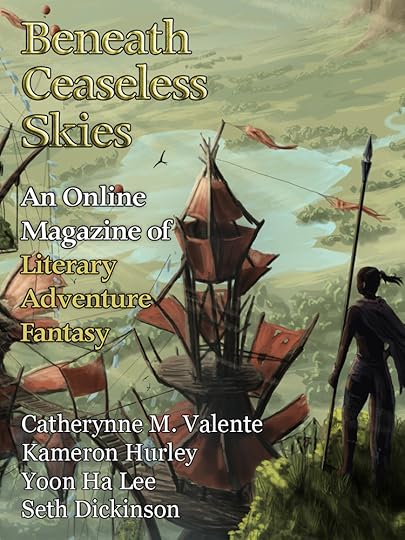
Yet another pretty BCS cover.
Almost a decade ago I was part of a terrific workshop run by Walter John Williams and Connie Willis in the Taos Ski Valley. It was a talented group, and the two week session was a happy blur of lots of writing, lots of critiquing, and lots and lots of shop talk, plus assorted movies and a lot of wine.
One of the participants mentioned that he planned to start a literary fantasy online magazine. Since he happened to like the stuff I was workshopping, I figured that would be a surefire sale. So as soon as he opened up the magazine, I fired off a submission.
And he rejected it, because he didn’t feel it had the right flavor for his magazine.
That’s one of the things I respect tremendously about that editor, who was of course, Scott Andrews. It was, in fact, not till the fourth or fifth submission that he took a story, which was a piece set in the same world in which the novel I’d workshopped at Taos, Tabat, in the form of “Love, Resurrected.” From day one, Scott had a strong vision for the magazine, and it’s been an inspiration to watch him implement it over the years.
Since then, I’ve sold a number of stories to Scott, and have always been terrifically happy with his edits. When the novel that I had workshopped at Taos finally came out, years later, I had a novelette set in the same world that he accepted, and he graciously worked with me in order to time its publication with the novel release date. Most recently, he published one of my Serendib stories as part of BCS’s Science Fantasy Month and as always the story emerged much the strong for his adept edits. A BCS acceptance — which I know to never take for granted — is always something I regard as one of a year’s accomplishments, overall.
I’ve also enjoyed reading stories by other people for the BCS podcast. Scott picks, at least in my opinion, pretty high-quality stuff, and it’s always a pleasure to read. In his meticulous attention to detail, he goes to lengths to make sure that all the pronunciations are exactly as the author intends, which is sometimes a difficult task in fantasy literature.
I always look forward to meeting up with Scott at conventions. I know that we’ll have long and thoughtful conversations that range all over the place, flavored by Scott’s gentle affability and sharp insight. I love BCS, because it is a splendid example of the sort of many-chambered edifice a truly talented person can build when they plunge themselves into a particular passion consistently over time. I wait to see what the coming years bring it. I cannot imagine it will be anything short of even more awesomeness as he continues to enrichen the fantasy landscape we all share.
Want to know when I have new stories appearing? Subscribe to my mailing list for more tips and market news as well as information about my online writing classes and a monthly giveaway.
#sfwapro
May 23, 2016
2016 Online Writing Classes, Plunkett Scholarships, Upcoming Releases, and More
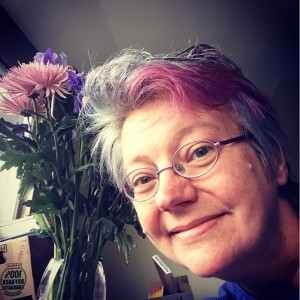 Here’s what’s coming up in June and July, which is also the last round of classes for 2016. I am taking the rest of the year off from teaching (other than maybe a co-taught class or two) in order to focus on writing and SFWA and because I am traveling all over the place, which is awesome but exhausting. The newsletter will continue and is the best way to know about classes before they are publicly announced.
Here’s what’s coming up in June and July, which is also the last round of classes for 2016. I am taking the rest of the year off from teaching (other than maybe a co-taught class or two) in order to focus on writing and SFWA and because I am traveling all over the place, which is awesome but exhausting. The newsletter will continue and is the best way to know about classes before they are publicly announced.
Writing Class Scholarships
Going forward, each class has one slot that is the Plunkett slot, which is reserved for someone who couldn’t otherwise pay for the class. To apply for a Plunkett, mail me at catrambo AT gmail.com with the subject line Plunkett Application (class name/date). In the email, provide a brief statement regarding you want to take the class. Plunkett eligibility is self-determined and covers the cost of the class in full; it is based on whether or not you can afford to take the class otherwise. If you can’t but feel it would be helpful to you, I encourage you to apply. The name of the recipient remains private. I particularly welcome QUILTBAG and PoC participants. The Plunkett scholarships are named for Edward Plunkett, who wrote as Lord Dunsany.
Why am I calling them the Plunkett scholarships? Because it amuses me, and because that’s the name I gave the little press I’m using to self-publish some story collections. There’s some interesting class-based tensions coiled inside the Plunkett/Dunsany name and I figured that made it a good name for a scholarship whose criteria are economic.
Why am I doing it? Recently Keffy R.M. Kehrli paid for one of my classes for a student and it got me to thinking about it. F&SF has a rich tradition of paying it forward, and while I’m trying to do some of that with the SFWA Presidency, this is another way to help ensure a rich range of new voices in the field. I want these folks around to write wonderful fiction for me to read. So yep, this is a purely selfish move on my part.
New Class on Linguistics with Juliette Wade
I’m excited to be co-teaching a class on Linguistics for Writers with Juliette Wade on July 10th. While linguistics and worldbuilding is something workshops often explore, this one will also cover linguistics at the sentence and word choice level. If you’re curious about my co-teacher, you can find her website here. An on-demand version of the class is also in the works.
List of Live Online Classes for June/July 2016
You can find links to listings for the separate classes on this page; be aware pages are still being updated with dates, and that this post is the definitive listing.
ALL CLASSES ARE IN PACIFIC TIME
Writing F&SF Stories Workshop (six sessions)
Wednesdays 5-7 PM June 1, 8, 15, 22, 29, July 6
Advanced Workshop (six sessions)
(prerequisite: Writing F&SF Stories workshop)
Tuesdays 5-7 PM May 31, June 7, 14, 21, 28, July 5
June Single Session Classes, 9:30-11:30 AM
June 4 (Sat) Writing Your Way Into Your Novel
June 5 (Sun) Moving from Idea to Finished Draft
June 11 (Sat) Creating an Online Presence for Writers
June 12 (Sun) First Pages with Caren Gussoff
June 18 (Sat) Flash Fiction Workshop
June 19 (Sat) Literary Techniques for Genre Writers Part I
June 25 (Sat) Character Building Workshop
June 26 (Sat) Literary Techniques for Genre Writers Part II (prerequisite, Lit Tech I)
July Single Session Classes, 9:30-11:30 AM
July 9 (Sat) Moving from Idea to Finished Draft
July 10 (Sun) Linguistics for Genre Writers (with Juliette Wade)
July 16 (Sat) Writing Your Way Into Your Novel
July 17 (Sun) Creating an Online Presence for Writers
July 23 (Sat) Description and Delivering Information
July 24 (Sun) Rewriting and Revising
July 30 (Sat) Literary Techniques for Genre Writers Part I
July 31 (Sun) Character Building Workshop
How to Register
To register for a class, mail me with the name of the class, the date, and whether you prefer to pay via Paypal or some other means. If you are a new student signing up for multiple classes, you may apply the former student discount to every class after the first one.
May 22, 2016
Catching My Breath and What’s Coming Up
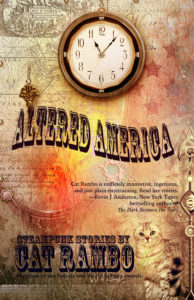 Most of the last couple of months has been focused on one of several things: finishing the beta draft of Hearts of Tabat, finishing up the second edition of Creating an Online Presence for Writers, sorting through details for the release of Altered America: Steampunk Stories, or SFWA’s Nebulas Conference, which took place midmonth in Chicago, and which I blogged about last week.
Most of the last couple of months has been focused on one of several things: finishing the beta draft of Hearts of Tabat, finishing up the second edition of Creating an Online Presence for Writers, sorting through details for the release of Altered America: Steampunk Stories, or SFWA’s Nebulas Conference, which took place midmonth in Chicago, and which I blogged about last week.
So here’s some highlights of my summer schedulee.
Tomorrow I’ll post the list of classes for June and July, which includes a round of the Writing F&SF Stories workshop (Wednesday evenings) as well as the Advanced Workshop (Tuesday evenings). I’m not 100% sure, but I think that’s the last round of classes for 2016, aside from a workshop I am doing for Clarion West this fall and maybe a co-taught one every once in a while. I’ve got a lot of travel coming up in the latter half of the year and I’d like to be able to focus on writing and SFWA as well. Whether or not I decide to run for office again next year depends in part on how much I can manage to get done this year.
In answer to several people asking about the difference between the two multi-session workshops — I created the Advanced one for people who took the first F&SF one and wanted more. If you haven’t taken the first, you should do that rather than the Advanced Workshop, regardless of skill level, because it lays out my theories of storytelling in a coherent way while the second ranges wildly all over the place.
June 10 is the release of Altered America, which is a compilation of all my steampunk stories. Patreon supporters at the $5 level and above will get a free electronic copy ten days in advance. This has ten stories in it altogether, a number of which were published on Patreon. I hope to do a similar mini-collection of near-future SF by the end of the year, which will also go to Patreon supporters beforehand.
June also sees the release of a Storybundle of writing books organized by Kris Rusch that includes the 2nd edition of Creating an Online Presence, which is why I spent part of last month frantically getting that updated in time.
Bud Sparhawk and I wrote a novelette together, “Haunted,” that should appear in July’s Abyss and Apex. It’s space fantasy. I think. We had a lot of fun with it,but it’s definitely not a comedy.
July 5th will feature the release of both the class and book version of Moving from Idea to Draft. You’ll see several other classes appearing in the Rambo Academy for Wayward Writers, including classes from Rachel Swirsky, Juliette Wade, and a couple of other folks.
Summer conventions include the Locus Awards weekend, Westercon, GenCon, Worldcon, and Dragoncon. After that I am off to Beijing for the Chinese Nebulas and will spend several weeks in China. Following that, Griffcon in Indiana, the Surrey Writers Conference, Orycon, and maybe WFC. (I’m not sure about that last. It’s been a travel-heavy year, and WFC isn’t my favorite convention. It always feels very anxious and unwelcoming, no matter what city I experience it in.)
Writing wise, I am completing the currently half-drafted YA novel based on “Circus in the Bloodwarm Rain,” which is currently laboring under the working titleConflagration and starting to flesh out the outline for the next Tabat book, Exiles of Tabat, which is the third of the quartet.
As always, plenty of stories are flowing and currently floating around in forms ranging from inchoate to semi-final draft. Right now I’m completing the Wizards of West Seattle story and realizing the concept’s going to end up becoming an ongoing series that probably will go out once a month or so on Patreon. I’m also thinking about a RPG supplement based on the copious notes I’ve been accumulating.
In SFWA areas, I’m focusing on a new committee that I’ll be working with, the Membership Retention Committee, whose job will be to look at the new member experience for SFWA members as well as how to keep the organization useful for members. (If you’re interested in volunteering with that, feel free to drop me a line.) Other efforts include a) working with SFWA fundraising, b) a small musical endeavor that I just prodded someone about and which involves Tom Lehrer (yes, that Tom Lehrer), and c) helping out where I can with some of M.C.A. Hogarth’s amazing efforts, such as this mysterious thing here lurking under a tarp that I am not at liberty to discuss. *mouths the words “SFWA University” then is dragged away by the SFWA honey badgers while shouting something about a guidebook*
Three other important SFWA things:
I’ll be watching the results of our decision to admit game writers with keen interest. I can tell you that the initial set is criteria is being voted on right now and I expect to see it announced soon.
An effort is in the works that I think will prove a lovely tribute to longtime SFWA volunteer Bud Webster and which will, in the longtime SFWA tradition, provide a benefit for professional writers at every level of their careers.
And we’ll (finally) be announcing some of the partnerships we’ve been making — you saw reps from Amazon, Audible, BookBub, Draft2Digital, Kickstarter, Kobo and Patreon at the Nebulas and those relationships are going to extend beyond the weekend and give our members special resources and relationships at all of those companies — and others, including one that I am super-stoked to have facilitated.
#mc_embed_signup{background:#fff; clear:left; font:14px Helvetica,Arial,sans-serif; }
/* Add your own MailChimp form style overrides in your site stylesheet or in this style block.
We recommend moving this block and the preceding CSS link to the HEAD of your HTML file. */
Subscribe to my mailing list and get first notice of new classes, plus a special monthly giveaway.
May 18, 2016
Nebula Conference 2016, Chicago
With our wonderful toastmaster, John Hodgman.
What was it like? Like getting to co-host at one of the most awesome weekend-long parties ever, but one with all sorts of interesting conversations full of stuff that was genuinely useful to my career interspersed at intervals.I write this amid a welter of notes, business cards, and obligations/opportunities acquired over the course of what was, for me, the best Nebula weekend I have ever attended. Part of that was the number of attendees who came up to express their appreciation of the programming, the award ceremony, the events, the overflowing book bags, the volunteers, the Nebulas issue of the Bulletin, the volunteer breakfast, and even with the way that they think SFWA has been going over the course of the last year. That is, to put it mildly, most gratifying, and is among the reasons I returned from Chicago renewed, refreshed, and re-enthused. A little under a year of my two-year presidential term lies behind me; I’m curious to see how much can be achieved in the next year.
Thank you to everyone who attended, both in person or virtually by spreading the word and retweeting. It was a weekend that was full of wonderful community and a chance to connect with new and old friends. There were so many moments that will live in my heart, including:
Acceptance speeches that made me weepy, such as Sarah Pinsker’s assertion that “this is the best of all possible timelines.” I agree.
Amazing alternate universe acceptance speeches from the other nominees that showed the sort of camaraderie and sportsmanship that inspires us all. I particularly loved Eugene Fischer’s speech, made from deep in the underground warrens, urging us all to believe with him that someday we would see the sun again.
Getting to give a SFWA Grandmaster Award to C.J. Cherryh. I mean. Holy smokes. Holy. Smokes. I’ll be thrilled all my life for that.
Jane Fancher, C. J. Cherryh’s partner, with tiny Bren.
While I greatly enjoyed all of the works on the ballot, I will admit I had some favorites, and getting to talk to authors Naomi Kritzer, Tamsyn Muir, and Martin J. Shoemaker was very special.
The stellar programming assembled by Mary Robinette Kowal and her team. I enjoyed all the panels that I was on or attended, and really appreciated all the “Ask an Expert” panels and chances to network with other industry professionals. While we can still improve, every piece of criticism was offered in a lovely “this was awesome, here’s how it could be even better” spirit that was refreshing in these sometimes acrimonious times.
The SFWA volunteer breakfast. The volunteers are what keeps the organization going, and it was very important to me that the board and staff get a chance to acknowledge some of you in person. Thank you so much for all you have done and continue to do.
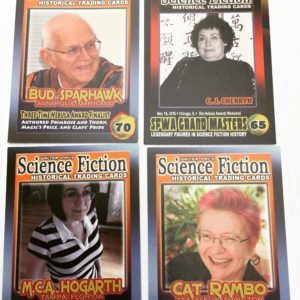
Cards by Walter Day.
Getting to hear John Hodgman say, among many other funny things, “Thank goodness the Storm Trooper showed up.” Also watching him almost give SFWA Operations Director Kate Baker a heart attack by pretending he was going to drop his globe.
The Radio SFWA synchronized dancing, written, choreographed, and organized by the lovely and talented Henry Lien. So. Much. Fun. Also now everyone else gets to share the earworm.
Everyone who took the time to sit down with me and talk about the organization and what they want to see over the coming years.
The Autographing Session, where we had an amazing total of 86 (!) authors signing.
The fabulous receptions sponsored by our wonderful sponsors, who included Daw, Kobo, Saga, and Tor.
The lovely trading cards created by Walter Day, which came in the jam-packed swag bags. I also freely pillaged the book swap table, to the point where I shipped my bag home via UPS rather than try to take it on the plane. Extra books were sent to literacy organization Project Outreach (I believe that was the name I was told, but that may not be right.)
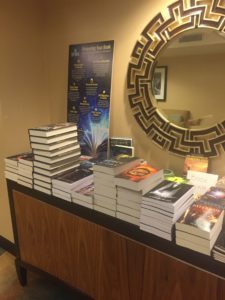
One of the the three book swap tables. Yow!
Getting to hear the game writing vote results announced by the ever-awesome Fran Wilde, whose book Updraft just happened to take the Norton Award Home.
Seeing the Kate Wilhelm Solstice Award gong to Sir Terry Pratchett.
Getting a copy of the new SFWA Bulletin’s Nebula issue. I saw several people using these as autograph books for the autographing session on Saturday night.
All the beautiful outfits on awards night, although Alyssa Wong absolutely took the overall prize for sheer glittering fabulosity.
Meeting so many SFWA members, both new and old, and getting to hear that overall, you guys think we’re doing pretty well. Thank you for the feedback and the many generous offers of assistance. I will indeed be in touch with all of you.
For me, so much of the weekend was a reaffirmation of joy in our genre and the worlds that we love, worlds created by some of the best and brightest. Opportunity to talk with so many talented, kind, and outstanding members of the industry. A chance to stand by one of my heroes, someone whose work I’ve read most of my life and who has been one of my role models, and see her body of work recognized. A chance to be in a place where people treated each other with respect as peers and took pride in each other’s accomplishments, where there weren’t the sort of meanspiritness and petty behaviors that belong on the playground rather than among fellow professionals. A chance to tell people some of what SFWA’s been working hard at in the past year, and some of what’s coming down the pike.
Here’s some of my favorite Nebula write-ups:
http://blog.ceciliatan.com/archives/2869
http://io9.gizmodo.com/women-swept-the-2015-the-nebula-awards-1776706665
http://www.nerds-feather.com/2016/05/my-favorite-stories-sometimes-win.html
http://www.npr.org/2016/05/16/478269681/people-want-these-stories-women-win-big-at-the-nebula-awards
May 4, 2016
More From Moving from Idea to Draft
Discovered in San Francisco on morning.
Having finished up the big April projects, one of the main things I want to get accomplished this month is getting the on-demand version of the Moving From Idea to Draft online writing class up along with the existing on-demand classes.This has proven a somewhat monumental task, because the needs of the on-demand version are very different than those of the live class. In the live workshops, which are limited to eight students, everyone comes in with a two-three sentence description of their idea, and we work from there, adapting the material to what they’ve brought into class.
For the on-demand version, I started by trying to identify all the different ways there are into a story, a number that fluctuates in the realm of two dozen, depending on how finely I want to draw distinctions.
What I’ve done with each possible path is identify what it is, what it gives you as a starting point, things you will want to consider, possible pitfalls, next steps for fleshing it out, and a set of exercises (with basic and overachievers’ versions) to help explore the starting point. I finish, in what I am still worried may be an excessively egotistic move, by providing a story of mine that started in that way and some notes on its development from the starting point.
Here’s a recently finished example from the section on beginning with various fragments, specifically where to go when all you have is a scene and you’re not sure where it goes in the story (as opposed to knowing the beginning or ending of the story, which I cover separately).
What it is:
A scene is usually a moment in time that has come to you. It usually has strong visual elements, and something is usually happening, such as a battle, or has just happened in it (a battlefield after the fighting is done). It is probably something that would appear at a significant moment of a story and not be peripheral to it.
What it gives you:
Everything but the plot. But actually, that’s not true. What is the main source of tension in the scene, what is the conflict that is driving things? That is probably a version of the overall plot.
A scene gives you a strong slice of the world and all that is implicit in that, including history and culture.
If characters are included in your scene, they are usually doing or have just done something more purposeful than just milling about. You have some sense of their occupation, their economic circumstances, and often some nuances of their relationship.
What you need to think about:
Why would this scene matter? As noted earlier, it’s something that is significant to the story. Does it appear near the beginning and spark things into motion, or does it appear at the end and sum up the action of the story?
What are the circumstances behind the scene? If it’s a visual splendor, there is usually some technology or magic underlying it and creating it.
What is the context in which it’s being viewed? Who is seeing it and why are they there?
What is striking about the image to you and how can you best convey that to a reader?
Is your scene just some sort of natural vista? That’s going to be hard to develop something from. In that case, think about what might make that vista unusual or unexpected.
Make it more than just a pretty picture. Something has to happen in a story and moments where there is just description slow narrative down drastically. If the camera is lingering on something, make it something riveting. Use interesting and lively verbs as well as paying attention to sentence length and paragraphing in order to counteract the slowing of the motion.
Possible next steps:
Consider the viewpoint. Who is seeing the scene? What is their relationship to it? What do they know about it and what questions do they have about it?
Write the accompanying dialogue. What’s being said in the scene, and why does it matter? Who is speaking and why?
The moment may be brief or extended; generally the longer it lasts, the more it gives you. Think about what happens immediately before and after the scene that you have; should some of that be included in the story?
Exercises:
Sometimes it’s helpful to expand the idea of the visual. How might you convey this scene in a graphic novel? Write it out as though it were a script. Overachievers: Write the entire story this way.
Describe same scene with two different moods, preferably ones as different from each other as they can be, such as a joyous description of the scene versus a saddened or enraged one. Overachievers: Expand to 3-4 moods and/or combine several moods in a single description.
Construct a mirror scene, a second scene in which many elements of the first are repeated, but different actions take place. Overachievers: Figure out where in the story your scene takes place and put your scene in a spot that would balance it in the story. For example, if your story is at the beginning, create one at the end, or vice versa. (If it falls in the middle, create something at either the beginning or end, but contemplate making the task even more complicated by doing both.)
Case study: Magnificent Pigs
For me the story “Magnificent Pigs” began with an image of its final scene, with the pigs flying away bearing Jilly’s bed into the night. Once I had that, I knew she was important, but also that she was not the protagonist. That would be whoever was watching her fly away into the night, which turned out to be her brother.
“Magnificent Pigs” is a good example of how, once you have a scene, you can begin to accrete details that flesh the story out. I had read about a recent art project that involved tattooing pigs; this became the way that they acquire their wings. A trip to the tattoo parlor with my friend Kris, who was getting a tattoo, lent some details for verisimilitude, and on the way back as we were discussing the story, she told me the anecdote about her mother telling her Charlotte was always alive in the book in order to console her (and gave me permission to use it in the story). To me, that’s a lovely little note, because of course it has a parallel — Jilly will also always be alive in the story.
This is an early story, which appeared in Strange Horizons, and was one of my SFWA qualifying sales. It appeared in audio form on Podcastle and inspired one of my favorite reviews, in which the reviewer talks about driving along with tears streaming down their face because they were listening to this story. That’s a heady thing for a writer and remains something I cherish.
#mc_embed_signup{background:#fff; clear:left; font:14px Helvetica,Arial,sans-serif; }
/* Add your own MailChimp form style overrides in your site stylesheet or in this style block.
We recommend moving this block and the preceding CSS link to the HEAD of your HTML file. */
Subscribe to my mailing list for information on upcoming classes and a monthly giveaway.
May 3, 2016
WIP: The Wizard of West Seattle
West Seattle graffiti from the Coffee Conspiracy.
This will be going out to Patreon supporters towards the end of the month. It’s urban fantasy, set here in West Seattle.Being the apprentice for one of West Seattle’s main wizards – probably the main wizard, many thought – was not at all what Albert thought it should be. He’d been installed in the position two weeks ago and so far, all May Hua had asked him to do was walk her dogs, two elderly but still energetic Shih Tzus, three times each day. The rest of the time he studied in the workshop, but it was a self-appointed path and it made him itch, knowing that he could have moved so much faster if she’d been willing to guide him along it.
He said this – not for the first time – to Penny as they walked along. Penny was the housekeeper for Hua’s household, but like Albert, she was frequently at loose ends and so accompanied him on many of the walks. At first he’d been worried she was attracted to him, but it became clear soon that she was bored and he was a fresh novelty. “It’s been a while since May took an apprentice,” she said. She was appreciative of Albert’s presence, particularly since he praised her cooking vociferously. He’d learned a few things since his first, disastrous stint as an apprentice.
And that disastrous stint was what made him reluctant to speak up about his frustration. The closest he came was to ask May at breakfast, “What do you think I should be focusing on?”
She put down her fork and gazed at him. “Appearances,” she said briefly, and went back to her meal with no sign of desire to explain further.
“Oh,” he’d said, and returned to his own meal.
He grumbled to Penny now as they went down the slope at California Avenue’s northern end Seattle a distant postcard to their left. “Magic’s set up weird over here. There’s this screwy street system. At least back in Redmond they had genuine territories with boundaries, not this thing with a wizard for each of the main streets.”
“Not all of them,” she said. “It’s a pretty short list. California, Admiral, Alaska, the pretender of Avalon, Fauntleroy, and Mortie. And the allegiance system’s pretty much territories. Just territories with a lot of special exceptions and loopholes.” She shrugged amiably.
“Not Mortie any more,” he said.
“Therein lies the rub,” she said. “You’re complaining about a lack of action right now, but just wait. They’re still figuring out how to divvy up his sovereignty, that whole long stretch along the shore.”
“Not replace him?” Albert said, surprised.
The Shih Tzus pranced as they waited to cross Alki Avenue. “As I said, just wait.”


